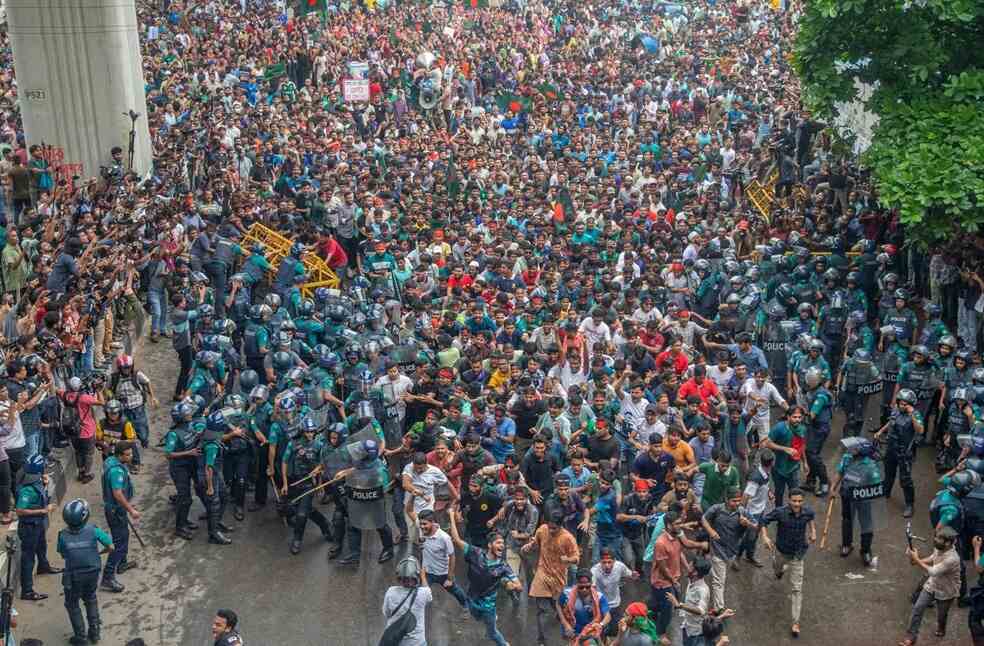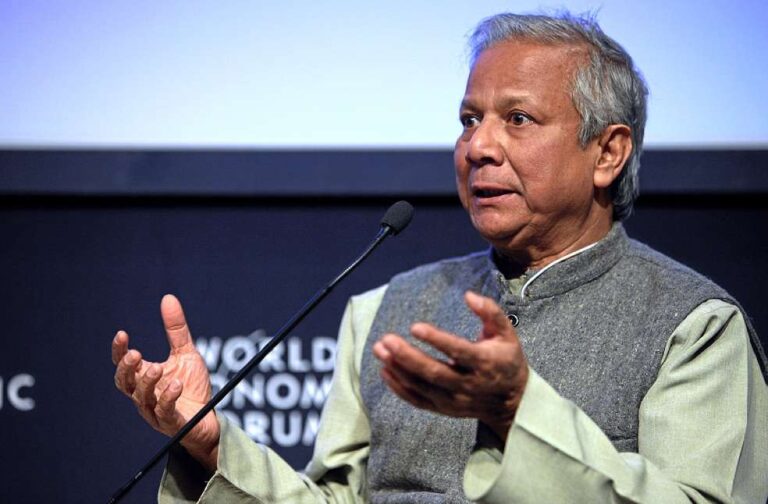Bangladesh: Nobel Peace Prize winner Muhammad Yunus has been named Bangladesh’s interim leader, following the ouster of Prime Minister Sheikh Hasina. Yunus, 84, was named chief adviser to the temporary government just a day after Hasina left the country amid weeks of violent protests.
Yunus, a longtime political foe of Hasina, has been praised for his innovative use of microloans to help the poor. However, Hasina has viewed him as a public adversary and recently, a local court sentenced him to six months in prison in a case he claims was politically motivated.
Student protesters had demanded that Yunus lead the temporary government, saying they would not accept a military-run government. After a meeting between President Mohammed Shahabuddin, military chiefs, and student leaders, Yunus was named chief adviser.
Yunus said that, “When the students who sacrificed so much are requesting me to step in at this difficult juncture, how can I refuse?” His spokesperson said he is returning to Dhaka from Paris, where he is undergoing a minor medical procedure.
Yunus founded Grameen Bank in 1983 to provide long-term loans to help poor people start small enterprises. The idea has become widely popular worldwide, and in 2006, Yunus and the bank were awarded the Nobel Peace Prize.
Hasina had accused Yunus of being a “bloodsucker” of the poor and claimed his bank imposed excessive interest rates. However, internationally, he is known as the “banker to the poor.”

Yunus was sentenced to six months in prison in January for violating labor regulations by failing to establish a welfare fund for employees. His supporters believe the case was politically motivated, and Yunus is appealing the verdict.
Other allegations against him include working at Grameen Bank beyond the required retirement age and evading taxes, which Yunus and his attorney claim are baseless.
The student protests began peacefully in July, demanding the abolition of quotas in civil service jobs. However, they quickly grew into a larger anti-government movement, with clashes between demonstrators and government troops resulting in nearly 400 deaths.
Hasina moved to India as protesters stormed and looted the prime minister’s official residence, ending her nearly 15-year rule. Many opposition figures, including former Prime Minister Khaleda Zia and activist Ahmad Bin Quasem, who were jailed under her rule, have since been released.
UN Secretary General Antony Blinken said that, “Any decisions that the interim government makes, they need to respect democratic principles to uphold the rule of law [and] reflect the will of the people.” Foreign leaders have urged Bangladesh to maintain democracy.”
Australian Foreign Minister Penny Wong called on all parties to refrain from violence and “respect universal rights.” Wong added that, “We urge a full and independent and impartial investigation into the events in recent weeks.”



